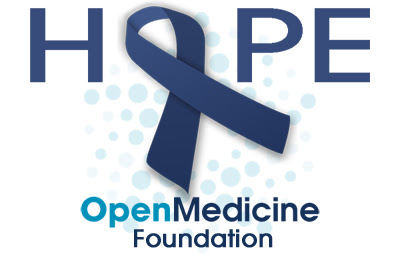Phase 1 of the End ME/CFS Project is fully funded!
$1 million ME/CFS Severely ill Big Data Study
We are thrilled to announce that we just received $350K from a tremendously generous anonymous donor for the ME/CFS Severely ill Big Data Study. This adds to our $500K and other incredible donations that we have received from generous and engaged donors via donations, recurring donations, crowdfunding efforts and fundraisers all over the world.
We will continue our efforts towards funding the next phase of the End ME/CFS project
and in bringing thought leaders together in global collaboration.
Now let's find a biomarker!
(check out details on our website)
It takes a community to make this happen and we are grateful beyond words
for your encouragement, engagement and support.
THANK YOU!
With much appreciation and HOPE!
 Linda
Linda
Linda Tannenbaum
Executive Director
Open Medicine Foundation
Collaborating to fast track answers
www.openmedicinefoundation.org
$1 million ME/CFS Severely ill Big Data Study
We are thrilled to announce that we just received $350K from a tremendously generous anonymous donor for the ME/CFS Severely ill Big Data Study. This adds to our $500K and other incredible donations that we have received from generous and engaged donors via donations, recurring donations, crowdfunding efforts and fundraisers all over the world.
We will continue our efforts towards funding the next phase of the End ME/CFS project
and in bringing thought leaders together in global collaboration.
Now let's find a biomarker!
(check out details on our website)
It takes a community to make this happen and we are grateful beyond words
for your encouragement, engagement and support.
THANK YOU!
With much appreciation and HOPE!

Linda Tannenbaum
Executive Director
Open Medicine Foundation
Collaborating to fast track answers
www.openmedicinefoundation.org
